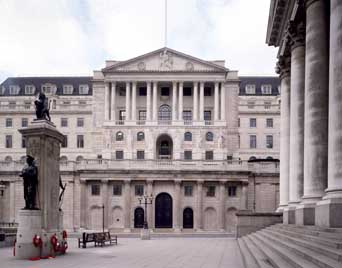Liability driven investment (LDI) funds have built up enough capital to withstand “much larger increases in yields than before”, the Bank of England (BofE) has said, with the risk of LDI funds triggering a ‘fire sale’ dynamic in gilt markets “significantly reduced".
In a letter to the Treasury Committee, BofE deputy governor, financial stability, Jon Cunliffe, confirmed that recent gilt market interventions had increased liquidity in the market, revealing that the majority of the gilt purchases were from LDI managers.
Cunliffe also explained that many LDI funds have taken action to put their positions on a more sustainable footing to ensure that they are better prepared for future stresses.
He stated: "In aggregate, market intelligence suggests that LDI funds have raised
tens of billion pounds in capital and made many billion pounds of gilt sales, both of
which will reduce their leverage."
“LDI funds have reported to the Bank that they have enough capital to withstand much larger increases in yields than before. It is however likely that selling behaviour would be triggered before this resilience was used up and before net asset values fell to zero.
“Taken as a whole, LDI funds are now significantly better prepared to manage shocks of this nature in the future. As such, the risk of LDI fund behaviour triggering ‘fire sale’ dynamics in the gilt market and self-reinforcing falls in gilt prices has been significantly reduced.”
Although Cunliffe acknowledged that the financial markets may remain volatile in the coming weeks, he clarified that “financial stability is not the same as market stability or the avoidance of any disruption to financial markets”.
“The operation was not intended to prevent markets from making the necessary adjustment to changes in the fundamental determinants of gilt prices – including the government’s changes to fiscal policy – which is a necessary part of gilt market functioning,” he explained.
"Looking forward, the increased resilience of LDI funds should reduce the likelihood of any further adjustments to changes in fundamentals being amplified in a similar way.”
In addition to this, Cunliffe stressed that although the gilt purchase auctions have stopped, BofE is continuing to make available liquidity facilities to support LDI funds that may be continuing to face liquidity pressures.
He also confirmed that BofE is continuing to work with The Pensions Regulator and the Financial Conduct Authority on the lessons to be learned, stating that while it might not be reasonable to expect market participants to insure against all extreme market outcomes, it is important that appropriate levels of resilience are ensured.
The letter to the committee also provided further detail on the BofE's decision to extend the gilt market operations to index-linked gilts.
Cunliffe explained that although that the Bank was first made aware of the difficulties in the index-linked gilt market around the time of its 28 September announcement, it was unclear at that point whether LDI funds could complete their necessary rebalancing by raising capital and selling conventional gilts rather than index-linked gilts.
He also noted that the Bank had never previously purchased index-linked gilts in its monetary policy operations as a policy matter, due to concerns that purchases by BofE could compound pressures faced by pension funds, given the low levels of illiquidity in the index-linked market.
"As such, the Bank had no prior operational capacity to make such purchases and preparing to do so required significant operational changes, which Bank staff began working on as a contingency before later starting the purchases," he explained.
Latest News
-
TPR urges trustees to ensure defaults reflect saver patterns
-
FCA opens targeted support authorisation gateway
-
ACA calls for formal notification process for professional trustee appointments
-
Royal Mail CDC scheme delivers pension increase of 6.4% in first year
-
Maps calls for industry to help sign up consumers for next dashboard testing phase
-
PASA launches trustee-admin engagement series to strengthen governance and oversight
THE ROLE OF INSURANCE LINKED SECURITIES (ILS) IN PENSIONS TODAY
Francesca Fabrizi sits down with Leadenhall Capital Partners Senior Managing Director, Alistair Jones, to talk about the role of Insurance Linked Securities (ILS) in pension fund investing today
Private markets – a growing presence within UK DC
Laura Blows discusses the role of private market investment within DC schemes with Aviva Director of Investments, Maiyuresh Rajah
Podcast: From pension pot to flexible income for life

Podcast: Who matters most in pensions?

In the latest Pensions Age podcast, Francesca Fabrizi speaks to Capita Pension Solutions global practice leader & chief revenue officer, Stuart Heatley, about who matters most in pensions and how to best meet their needs
© 2019 Perspective Publishing Privacy & Cookies









Recent Stories